Types of poppies – 16 of the most beautiful annual varieties to grow
Introduce some flamboyant blooms to your planting scheme with our favorite types of annual poppies

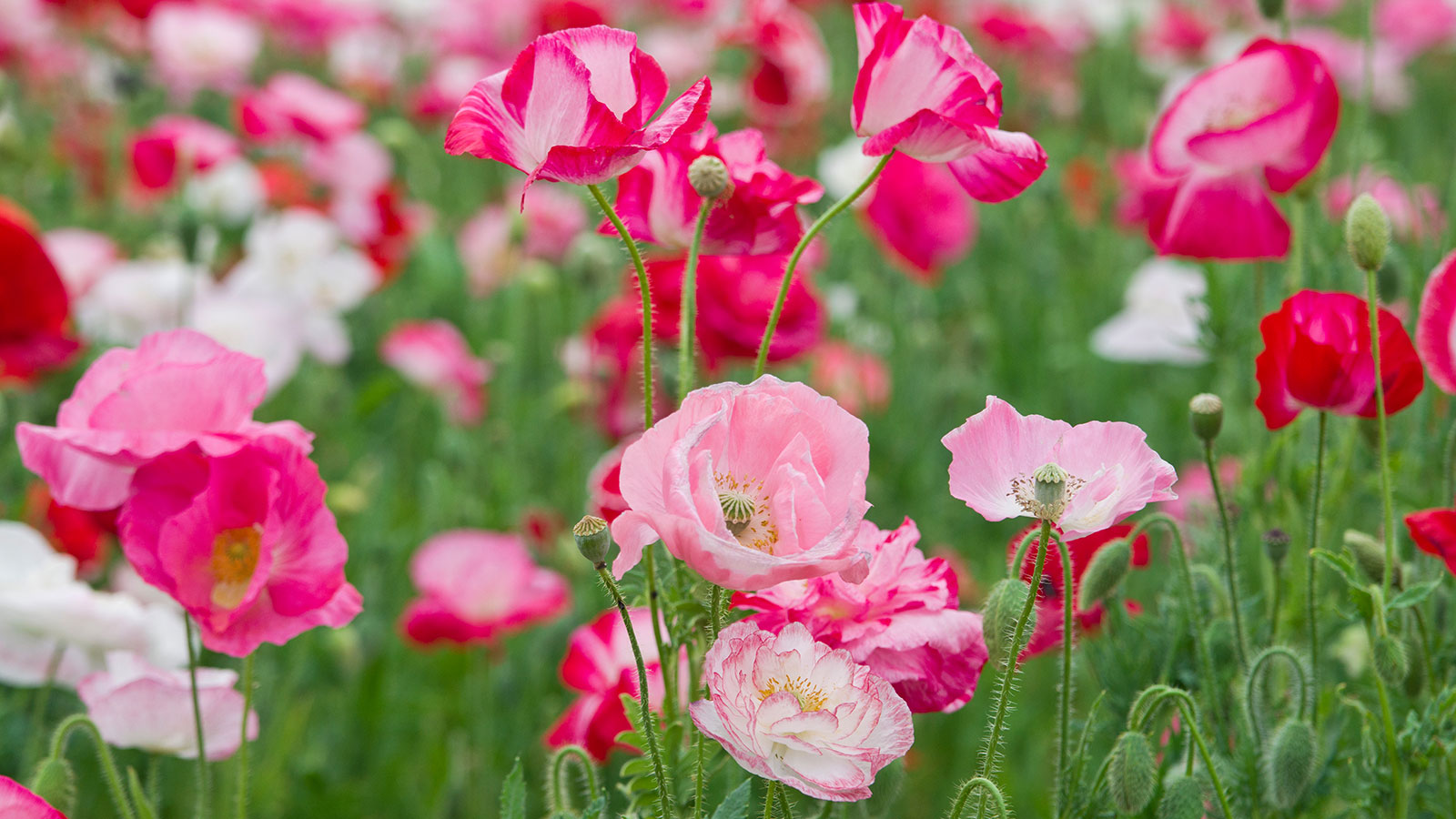
Design expertise in your inbox – from inspiring decorating ideas and beautiful celebrity homes to practical gardening advice and shopping round-ups.
You are now subscribed
Your newsletter sign-up was successful
Want to add more newsletters?

Twice a week
Homes&Gardens
The ultimate interior design resource from the world's leading experts - discover inspiring decorating ideas, color scheming know-how, garden inspiration and shopping expertise.

Once a week
In The Loop from Next In Design
Members of the Next in Design Circle will receive In the Loop, our weekly email filled with trade news, names to know and spotlight moments. Together we’re building a brighter design future.

Twice a week
Cucina
Whether you’re passionate about hosting exquisite dinners, experimenting with culinary trends, or perfecting your kitchen's design with timeless elegance and innovative functionality, this newsletter is here to inspire
Annual poppies are one of the easiest and most beautiful flowers to plant and grow, with stunning new types of poppies being developed each year.
Recently, corn poppies have become available in more astonishing new colors which have supercharged their popularity and made them even more desirable for gardeners. The other popular group is the breadseed poppies (Papaver somniferum), sometimes wrongly called opium poppies. They produce the poppy seeds we see on bagels as well as wonderful blue-grey foliage and large flowers in some stupendous colors, singles and doubles.
All these poppies are easy-to-grow hardy annuals for full sun in well-drained soil, for sowing in spring or early in the fall. They also tend to self-sow, with unpredictable results in terms of the flower color of their offspring.
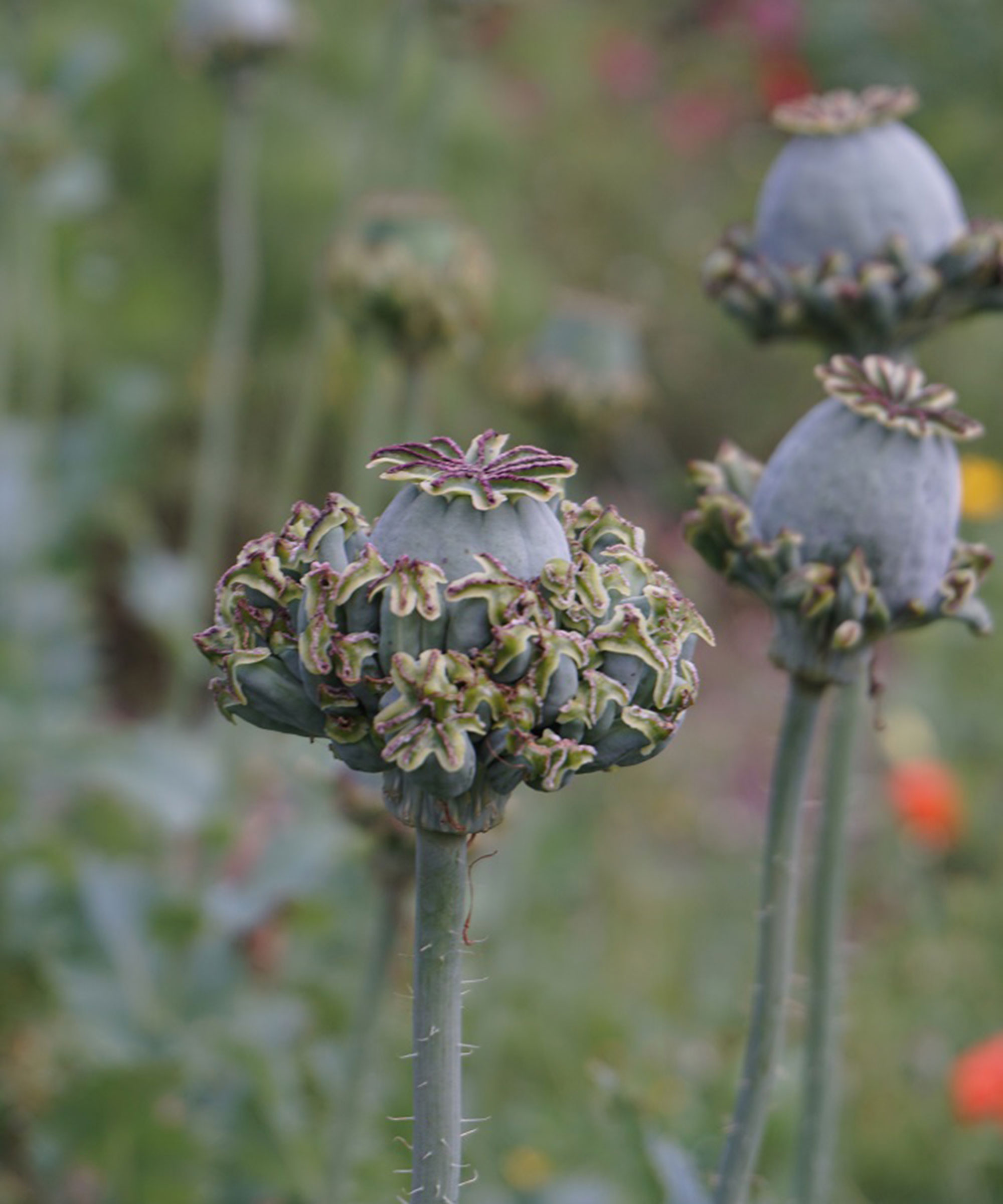
'Hen and Chickens' breadseed poppies produce large seed heads that are ideal for flower arranging
16 types of poppies to plant in your flower bed
These annual poppies are sure to delight with their many colors and forms. Include them in your flower bed ideas and you'll soon get to enjoy their stunning blooms throughout their flowering season.
1. 'Amazing Grey'
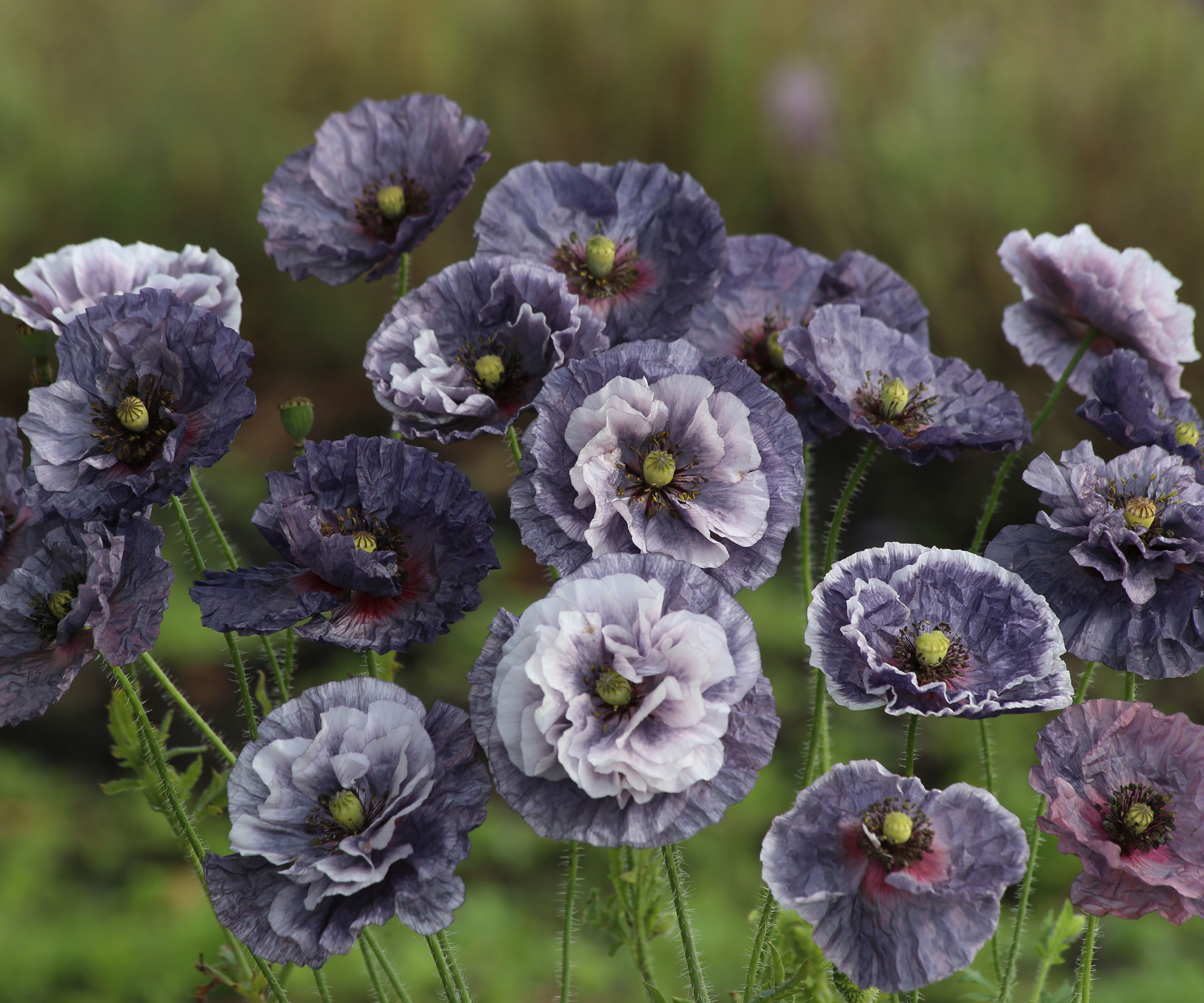
Annual poppy 'Amazing Grey' comes in classy shades ranging from slate grey to misty purple
- Type of poppy: Corn poppy (Papaver rhoeas)
- Height: 20-30in
'Amazing' is an apt description of the extraordinary colors. From slate grey to misty purple, there are single and semi-double flowers, and some are prettily picoteed.
Fall sowing ensures that the plants are genuinely prolific. Grow towards the front of a sunny border where you can easily admire the colors and patterns.
2. 'Angel's Choir'/'Dawn Chorus'
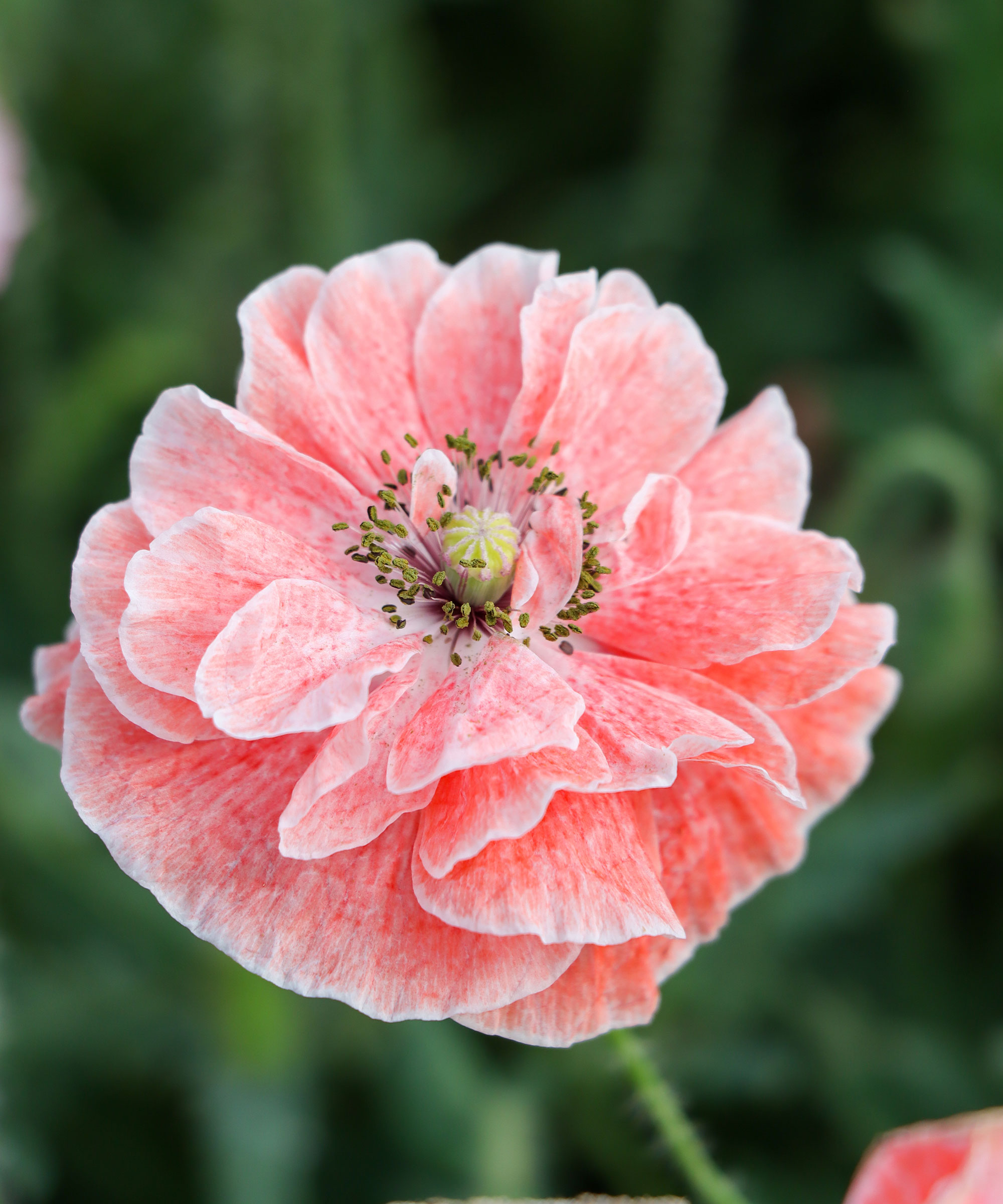
'Angel's Choir' is a delicate ruffled pink annual poppy
- Type of poppy: Corn poppy (Papaver rhoeas)
- Height: 20-30in
If you enjoy surprises, this unpredictable blend of flower forms and colors is for you. Sometimes listed as ‘Dawn Chorus’, the single and semi-double flowers come in a blend of cream, coral, lavender, and pink shades with many bicolors and picotees.
Design expertise in your inbox – from inspiring decorating ideas and beautiful celebrity homes to practical gardening advice and shopping round-ups.
Plants with semi-double blooms like this are some of the best cutting garden flowers. Simply dip the cut stems in boiling water for a few seconds before arranging.
3. 'Bridal Silk'
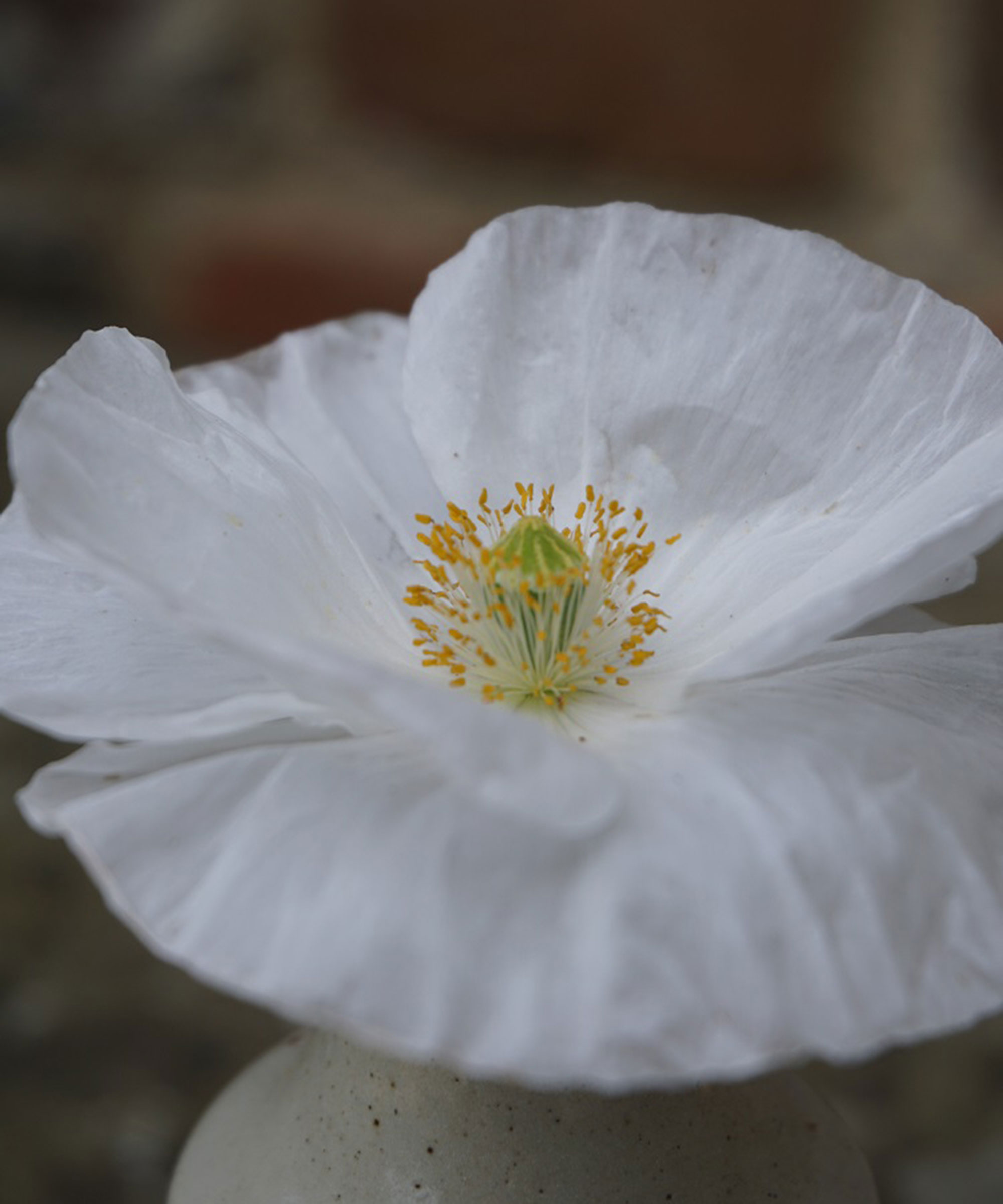
'Bridal Silk' is a variety of annual poppy with pure white petals
- Type of poppy: Corn poppy (Papaver rhoeas)
- Height: 20-30in
An elegant variety with the purest white single flowers, the silky petals surrounding a golden eye. It goes with anything, including other white-flowered plants and is a shoo-in for inclusion in any cool and calm white garden ideas.
It's very pretty when allowed to self-sow through plantings of perennials and annuals in pastel shades.
To keep your ‘Bridal Silk’ poppies white as they self-sow, pull out any plants in other shades to keep the colors pure.
4. ‘Falling in Love’
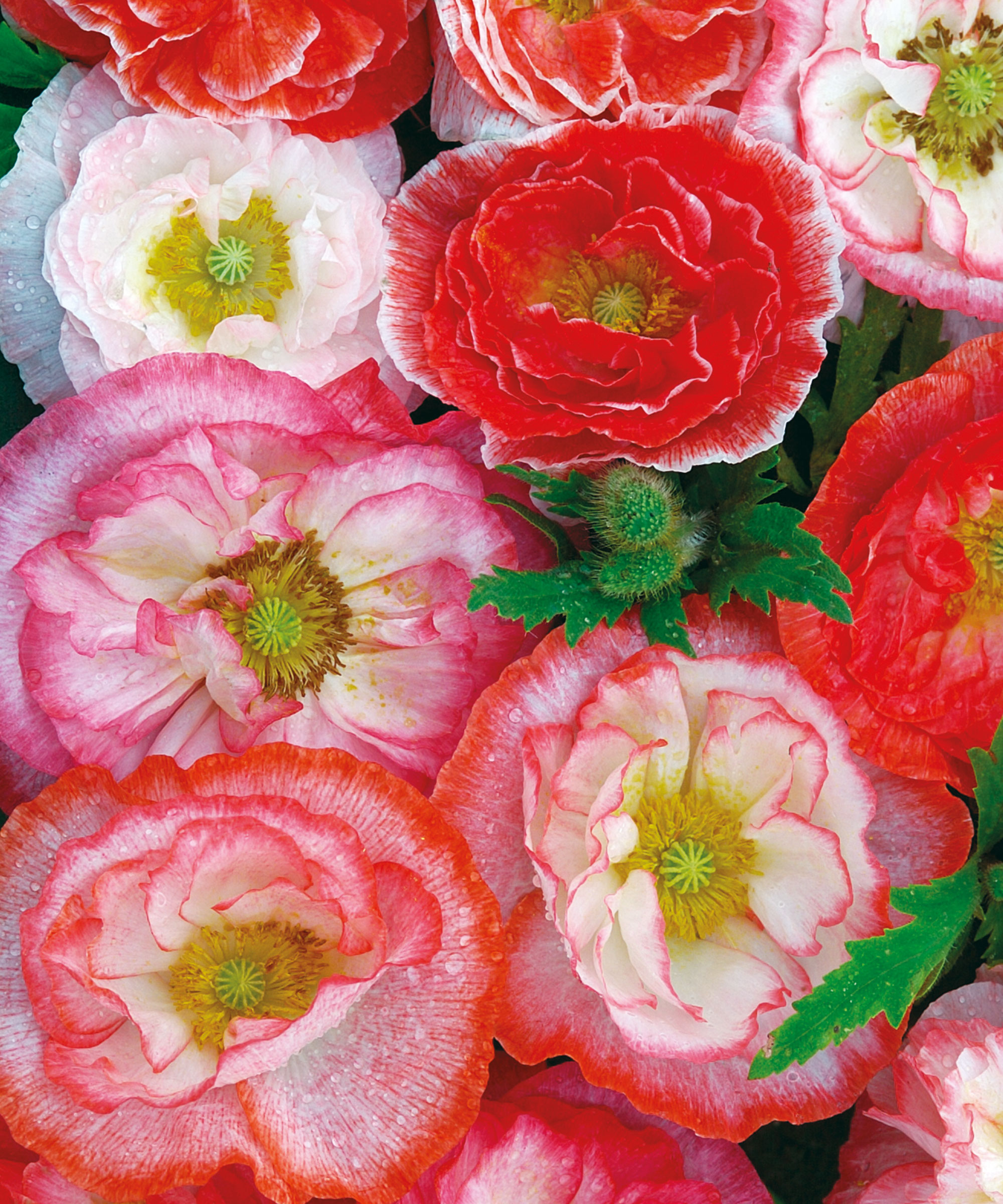
'Falling in Love' comes in shades of pink, salmon, coral and soft red, all with frilly picoteed edges
- Type of poppy: Corn poppy (Papaver rhoeas)
- Height: 20-30in
Semi-double and double flowers in a range of pink and salmon, blushed and coral shades, as well as soft reds – all with picotee edges.
Very pretty in a pastel border with grey foliage and pastel roses. It would make a particularly lovely addition to a cottage backyard planting scheme.
Pull out any plants with single flowers otherwise, as the plants self-sow from year to year, the doubles will disappear.
5. ‘Ladybird’
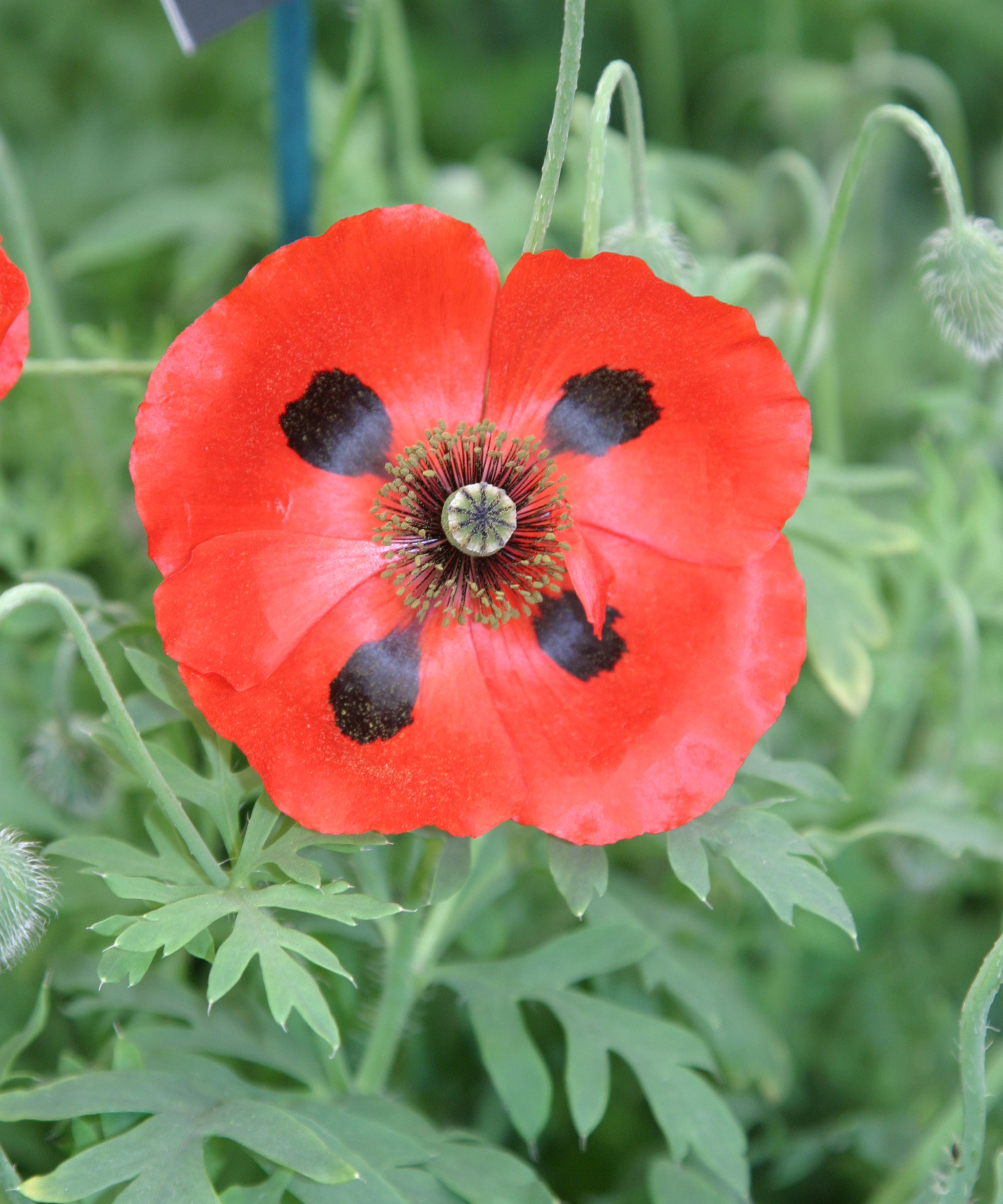
'Ladybird' is a simple but striking variety
- Type of poppy: Caucasian poppy (Papaver commutatum)
- Height: 15-18in
Perhaps the most dramatic annual poppy you’ll see, each bright postbox-red petal has a bold black blotch at the base. It's a stunning variety, especially as it’s a little more compact than most type of poppies.
Grow in front of evergreen shrubs, or spring flowering plants, to avoid color clashes.
6. ‘Mother of Pearl’
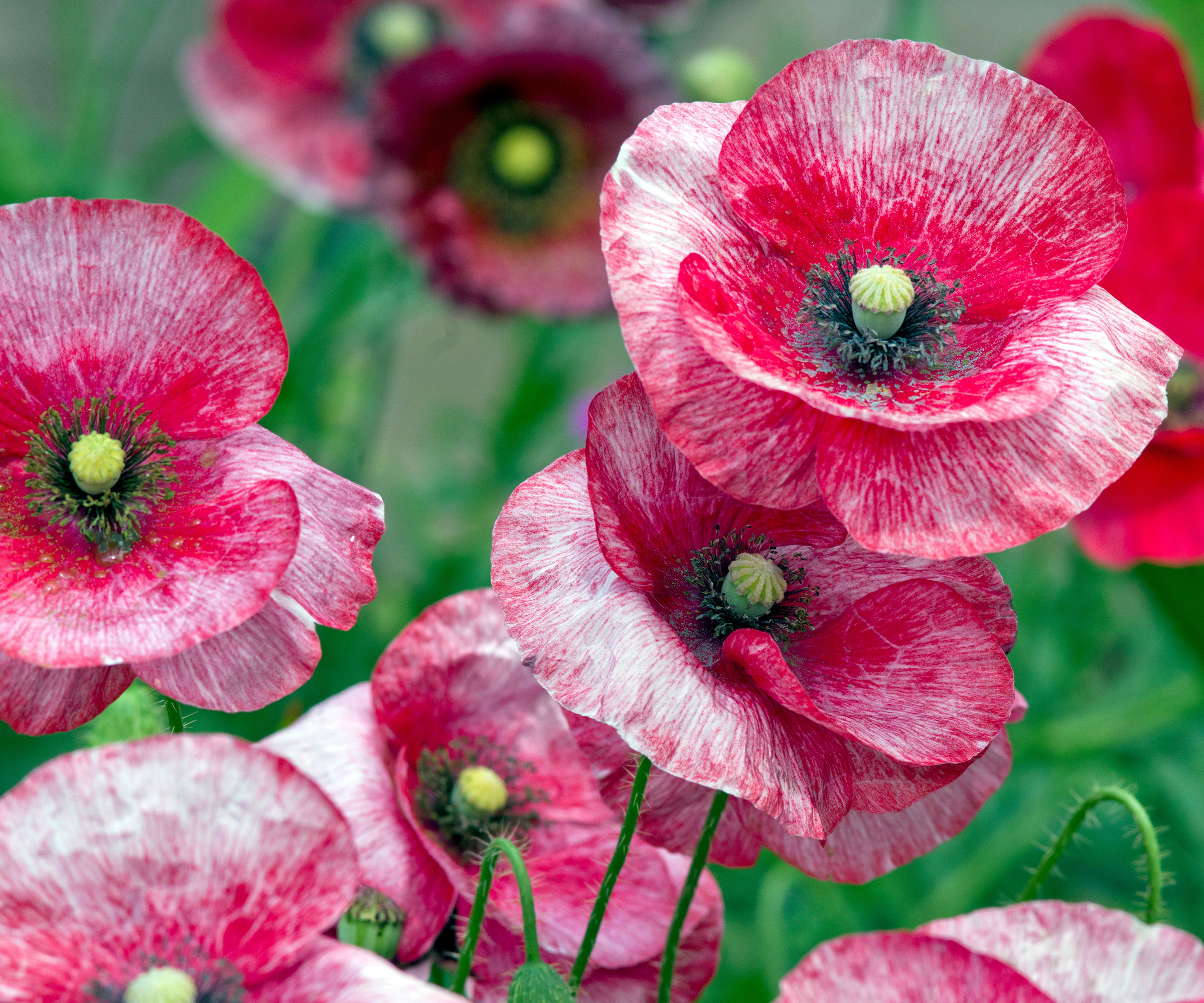
'Mother of Pearl' poppies are delicately toned and never red
- Type of poppy: Corn poppy (Papaver rhoeas)
- Height: 20-30in
Delicately colored misty and smoky grey, lilac, mauve, pink, soft orange and white single flowers – with no plants with red flowers. This variety was developed by the English artist and gardener, Sir Cedric Morris. It's sometimes sold as ‘Angel’s Wings’, ‘Cedric Morris’ or ‘Fairy Wings’.
If any plants open with red flowers, pull them out at the root when the first red flower appears.
7. ‘Pandora’
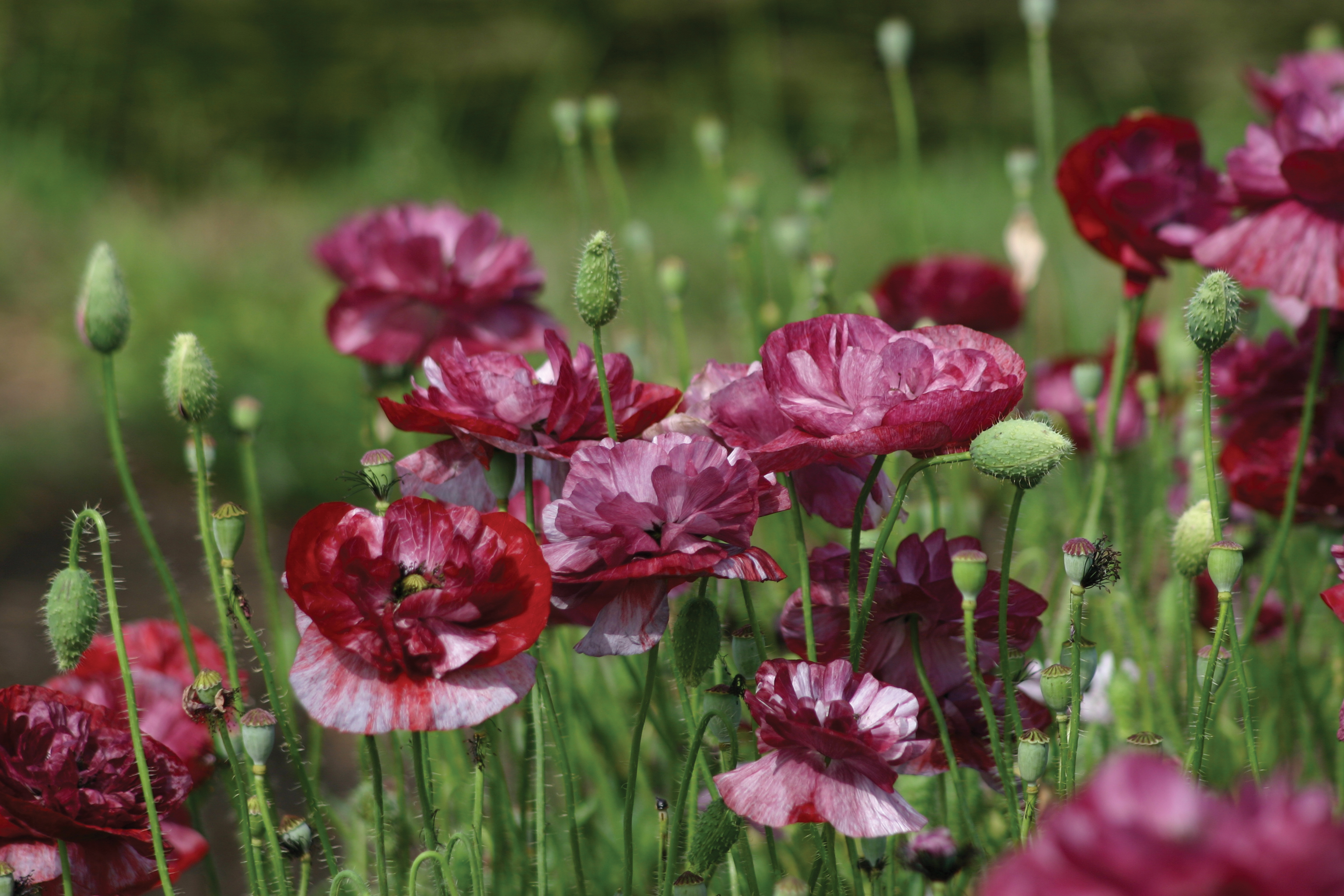
The poppy 'Pandora' produces double and semi-double flowers in dark wine colours
- Type of poppy: Corn poppy (Papaver rhoeas)
- Height: 2ft
A unique blend of mostly double and semi-double flowers in wine red and various pink and wine tones.
This type of poppy self sows prolifically, so pull out any with single flowers as the double-flowered plants are the most beautiful.
The coloring is ideal in clumps to add variety to a rose garden and in mixed borders. It's also becoming more popular as a flower for cutting.
8. ‘Shirley’ (aka ‘Reverend Wilks Variety’)
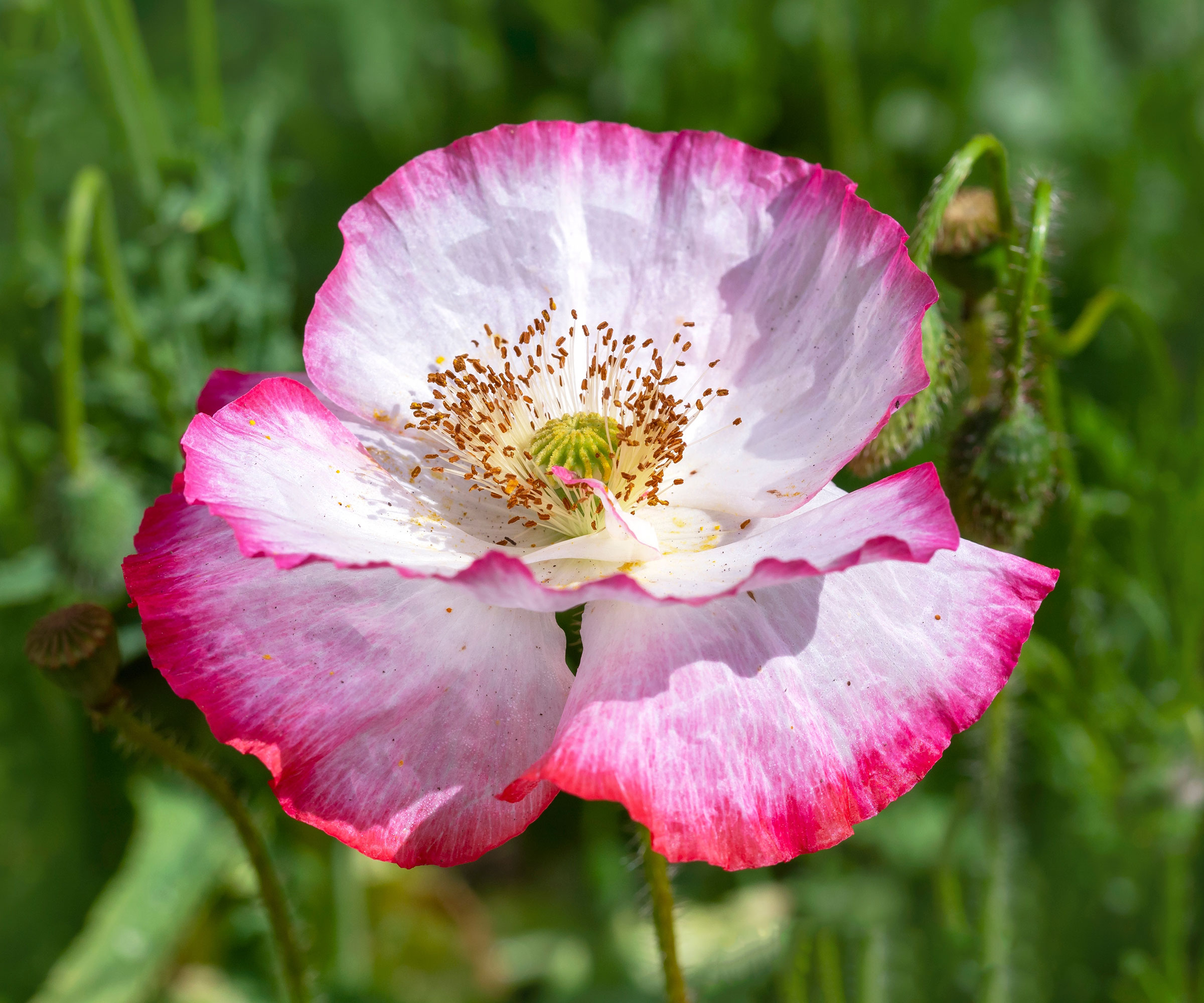
The pretty pink double petals of poppy 'Shirley' or ‘Reverend Wilks Variety’
- Type of poppy: Corn poppy (Papaver rhoeas)
- Height: 15-18in
This variety features single flowers in white and pale lilac shades to pink and red, with a white zone at the base of each petal. Look too for the double-flowered form, developed later.
Choose these if you like a blend of bright and pastel shades, with a little history.
9. Wild Flanders poppy
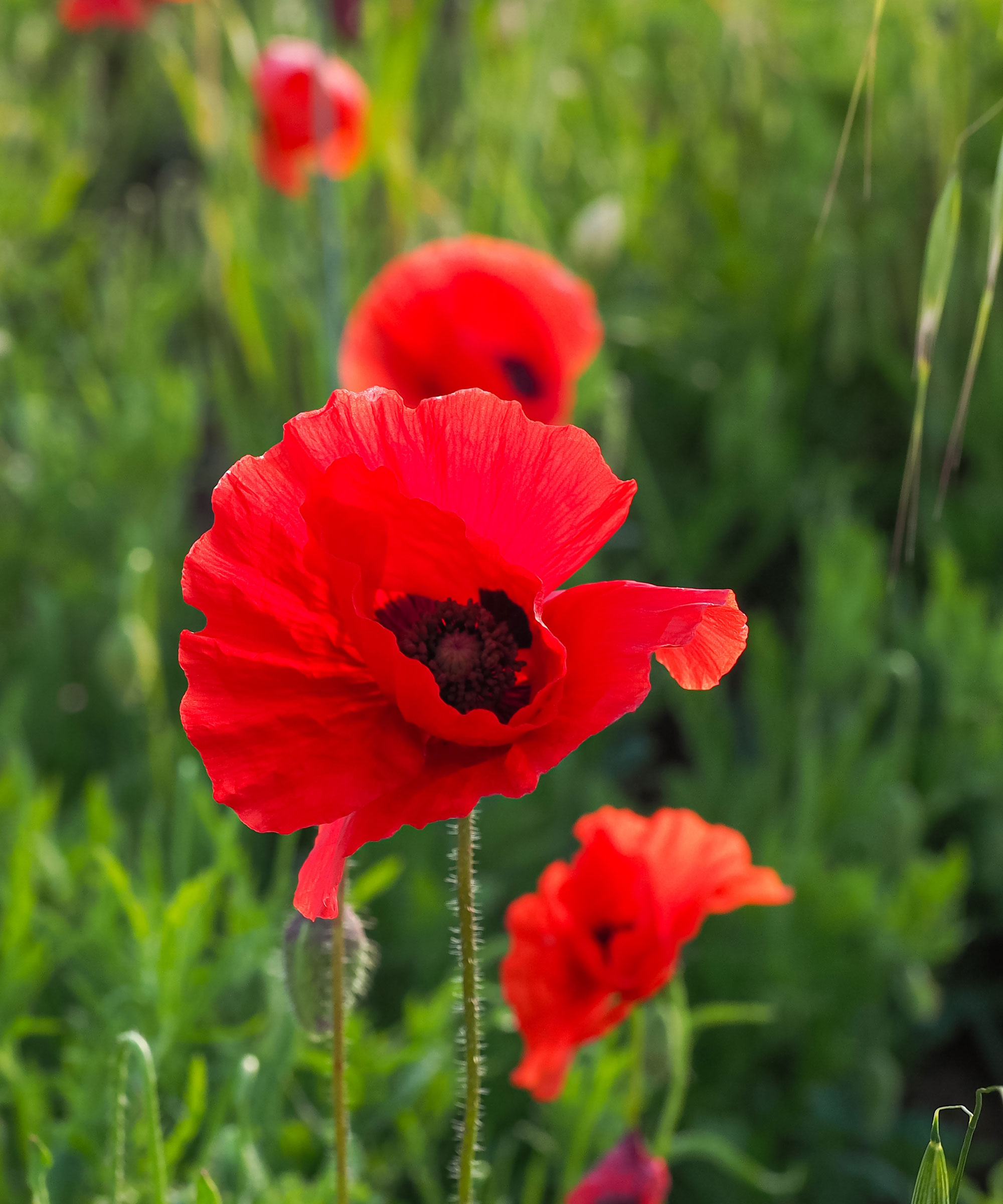
The Wild Flanders poppy has the traditional red petals of remembrance
- Type of poppy: Corn poppy (Papaver rhoeas)
- Height: 15-24in
The wild poppy of the British countryside, and of the First World War trenches, each brilliant red flower has a small black spot at the base of each petal.
Sow in fall or spring, and once you have it in your garden you probably always will.
It looks better in a mix of cornfield annuals including cornflower and corn marigolds grown from seed, than in a block. You could even have fun making wildflower seed bombs with a mix of seeds!
10. Armenian poppy
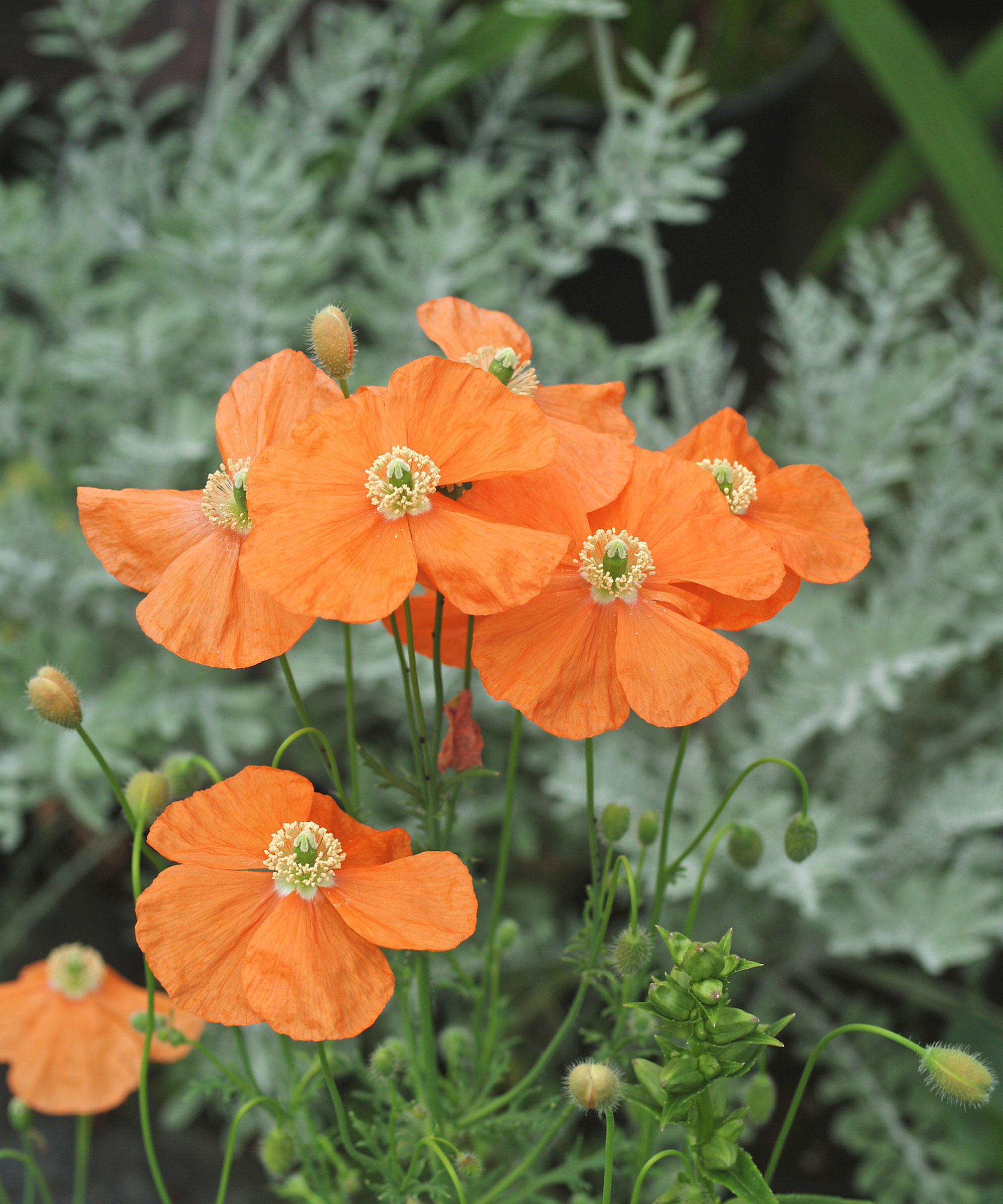
The delicate orange flowers of the Armenian poppy (Papaver triniifolium)
- Type of poppy: Papaver triniifolium
- Height: 16-24in
A superb winter annual for sunny gravel gardens and low maintenance raised bed garden ideas, the prettily dissected foliage makes a very attractive winter rosette followed by crinkled, soft orange flowers. It never seems to vary from the same attractive coloring either.
Thin out the self-sown seedlings to give space for individual rosettes to show themselves off.
11. Welsh poppy
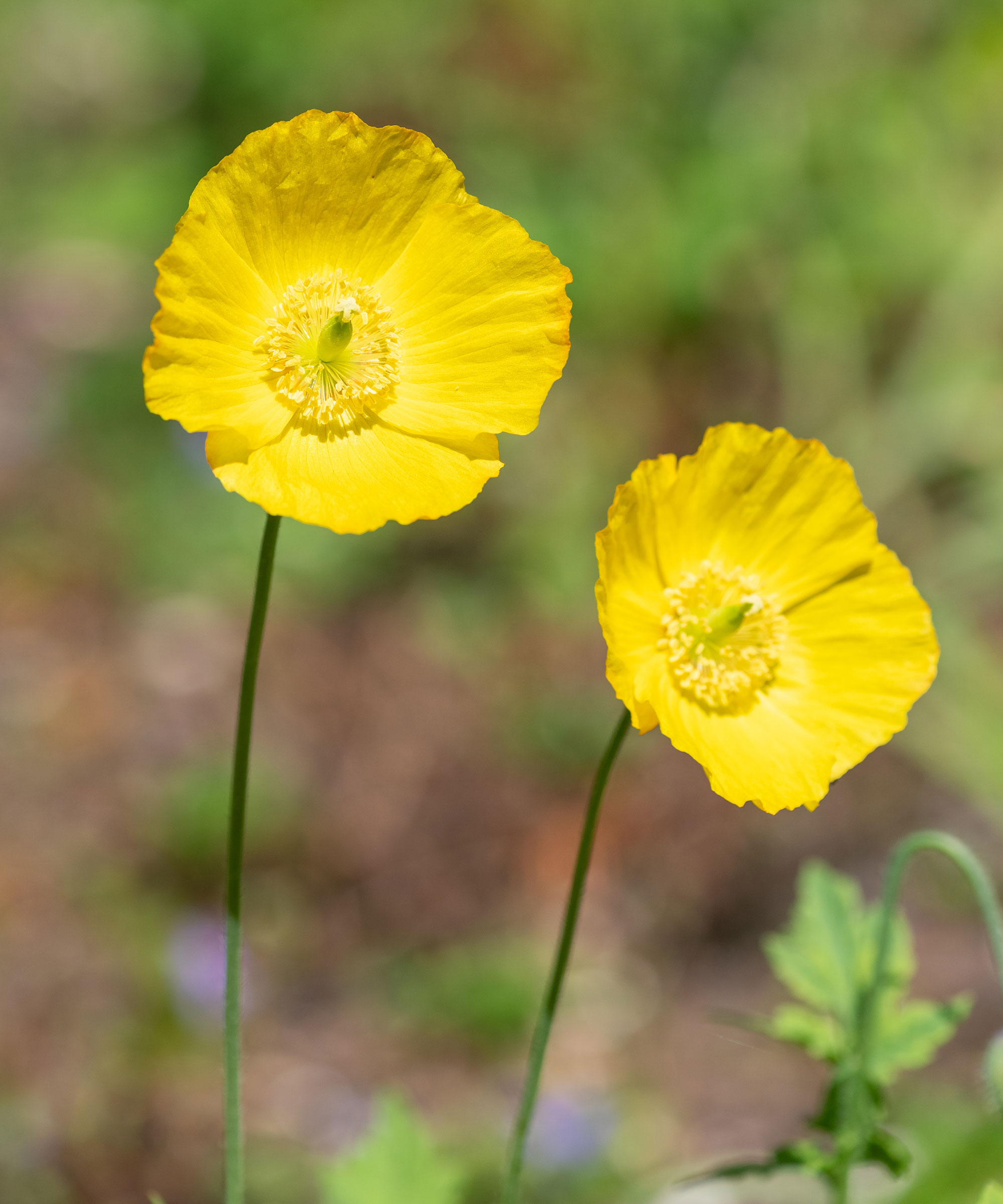
The striking Welsh poppy, now widely known as Papaver cambricum
- Type of poppy: Papaver cambricum
- HEIGHT: 9-16in
Not rare, but now found less frequently under its old familiar name of Meconopsis cambrica and listed as Papaver cambricum instead. It comes with yellow, orange and scarlet flowers – single or double.
Usually behaves more as a biennial, or even perennial, than as an annual and is happy in less sun than most poppies. Self-sows reliably but is never a nuisance.
12. Wind poppy
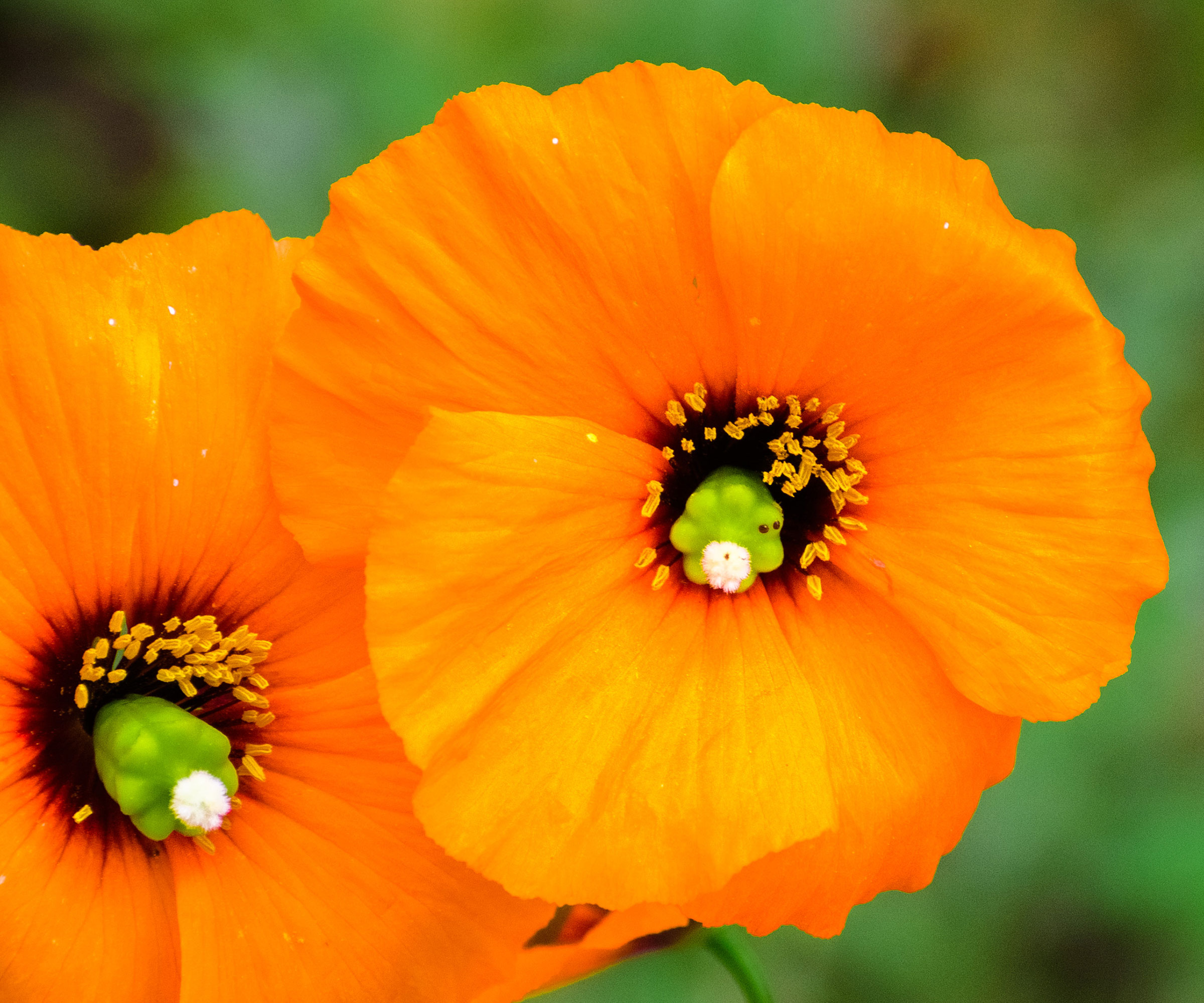
Wind poppies are scented, which is unusual for poppies
- Type of poppy: Papaver heterophyllum
- Height: 15-18in
Another plant whose change of name brings it here. It is still sometimes listed as Stylomecon heterophylla and is valuable for its color and, unusually, its scent.
Its unusual coppery-orange flowers, with a neat maroon zone at the base of each petal, have a lily-of-the-valley fragrance.
It will grow best in well-drained soil in full sun, including gravel gardens.
13. ‘Black Peony’
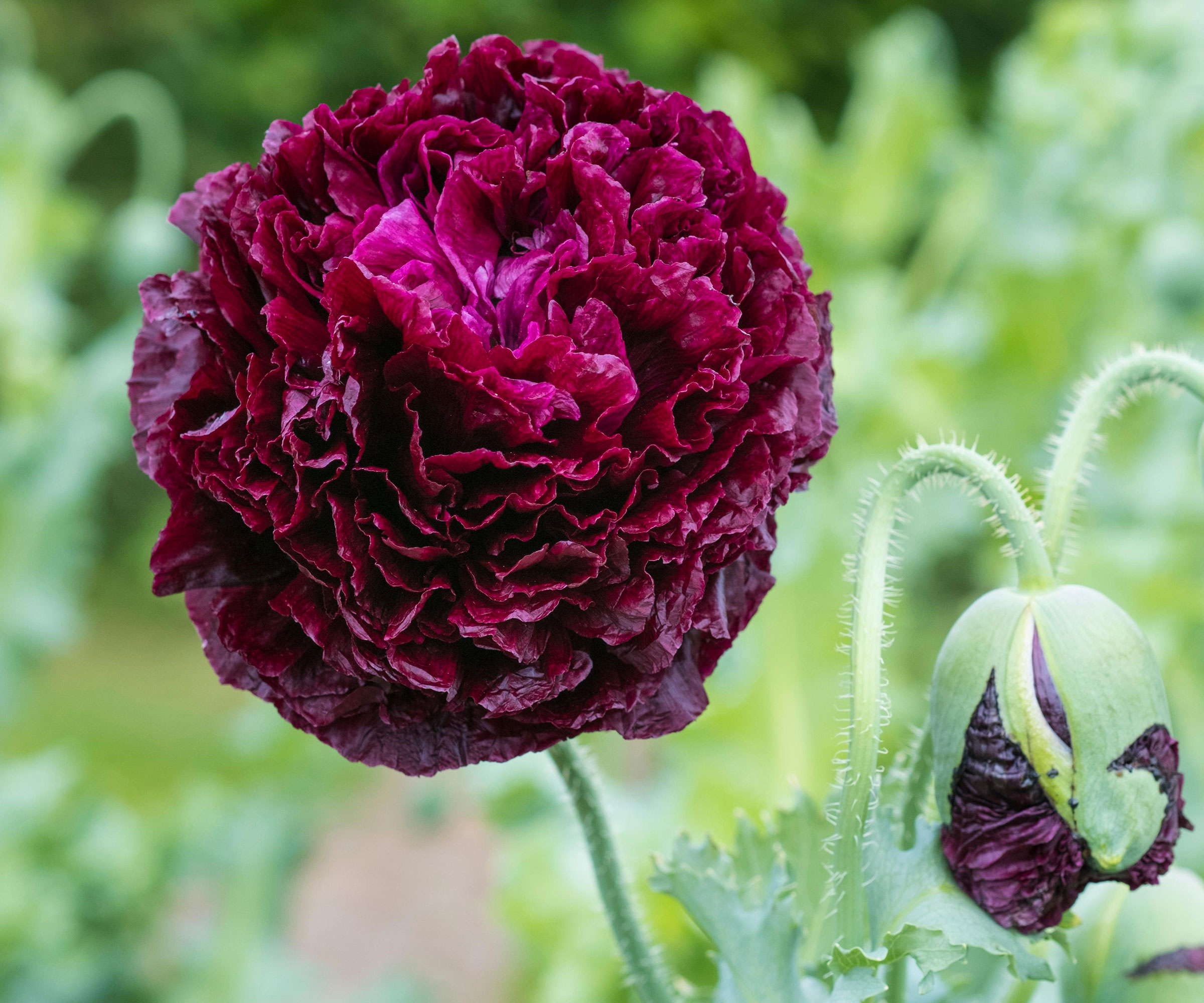
'Black Peony' is a dark and dramatic variety of annual poppy
- Type of poppy: Breadseed poppy (Papaver somniferum)
- Height: 30-40in
If you're looking for dramatic types of poppies to plant in your garden, you can stop your search. This has the most impressive, large, peony-like double flowers in deepest purple – almost true black, but not quite.
Like many purple plants, the flowers are shown off best against a background of silver foliage. They also make astonishing cut flowers.
Other colors, including ‘Seriously Scarlet’, ‘Double Cream’ and ‘Lilac Peony’, are available in this same flower form.
14. ‘Black Swan’
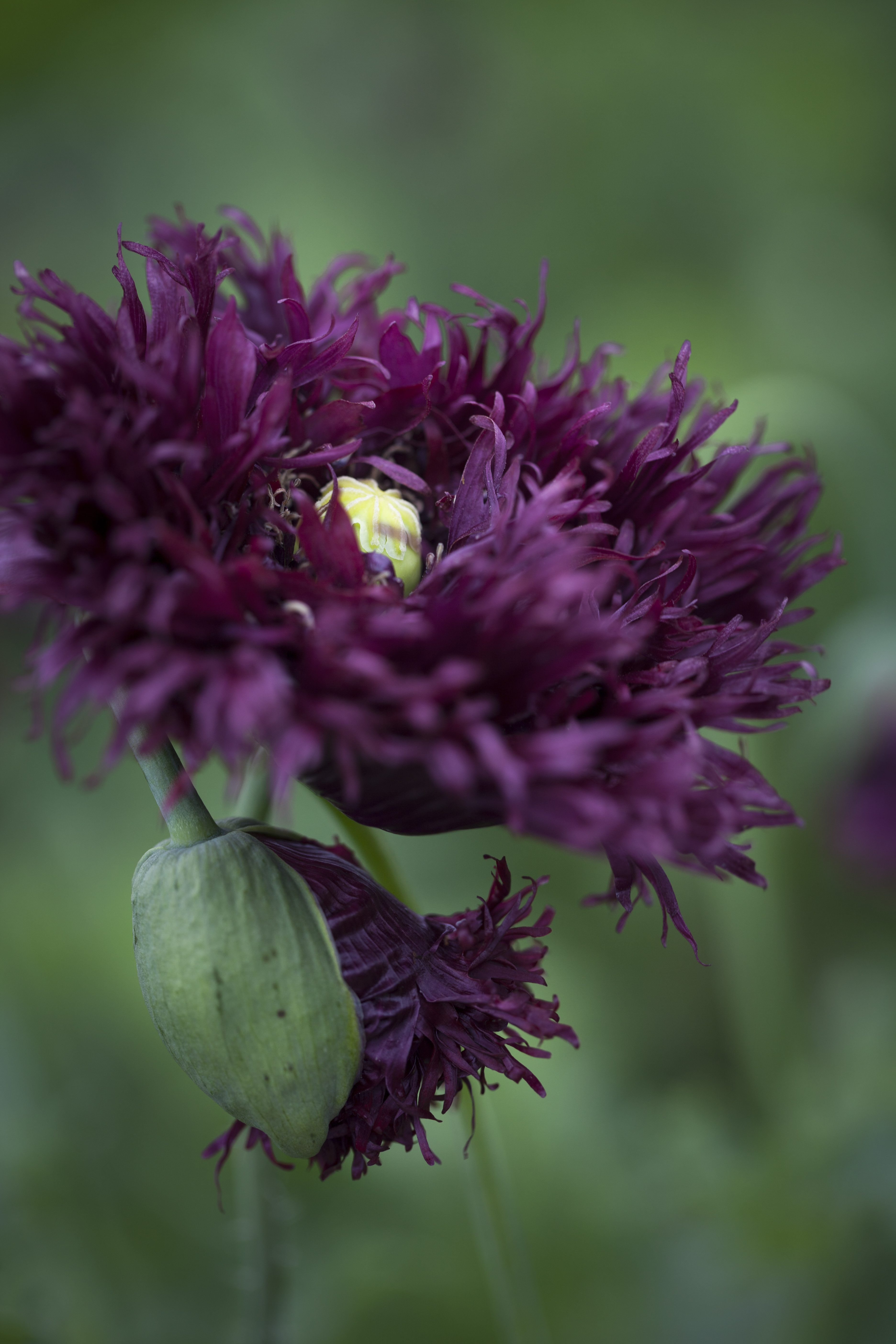
Dramatic purple petals of the annual poppy 'Black Swan'
- Type of poppy: Breadseed poppy (Papaver somniferum)
- Height: 30-40in
Masses of super-slender, filamentous petals in unusual crimson and deep purple with red flashes. It looks a little like a strange space creature!
Grow towards the front of a sunny border where you can easily admire the intriguing colors in the individual flowers.
Deadhead the plants when the petals drop to encourage a succession of flowers. Leave the last few of the season if you want self-sown seedlings.
15. ‘Frosted Salmon’
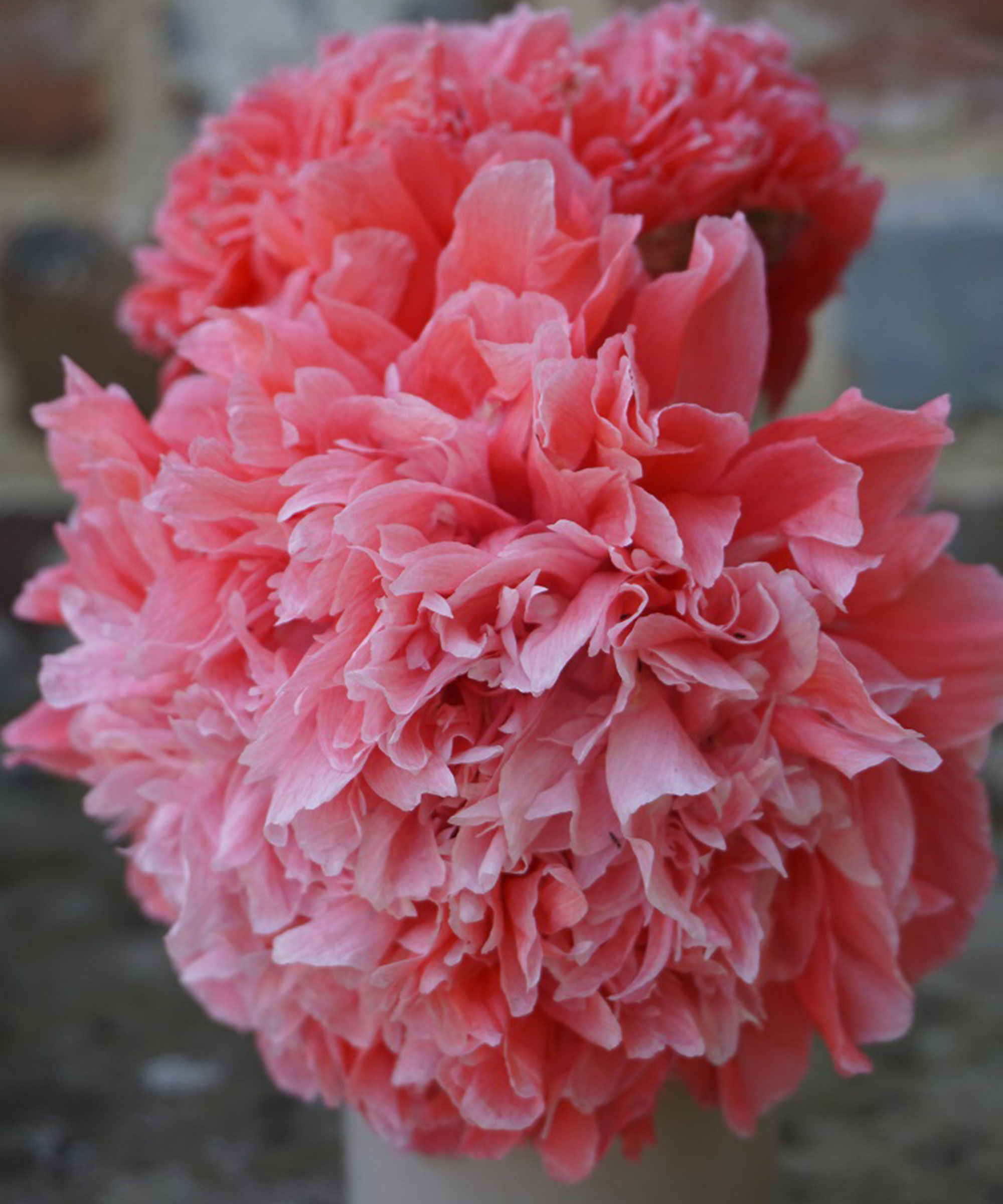
'Frosted Salmon' is a pink poppy with tightly ruffled petals
- Type of poppy: Breadseed poppy (Papaver somniferum)
- HEIGHT: 30-40in
Large, peony-like double flowers are crowded with frilly, pink petals delicately edged in white. This variety always reminds me of raspberry ripple ice-cream.
Very pretty emerging amongst Hydrangea paniculata varieties whose white flowers mature to pink.
Like corn poppies, dip the tips of the cut stems in boiling water for a few seconds to help them last.
16. ‘Giganteum’
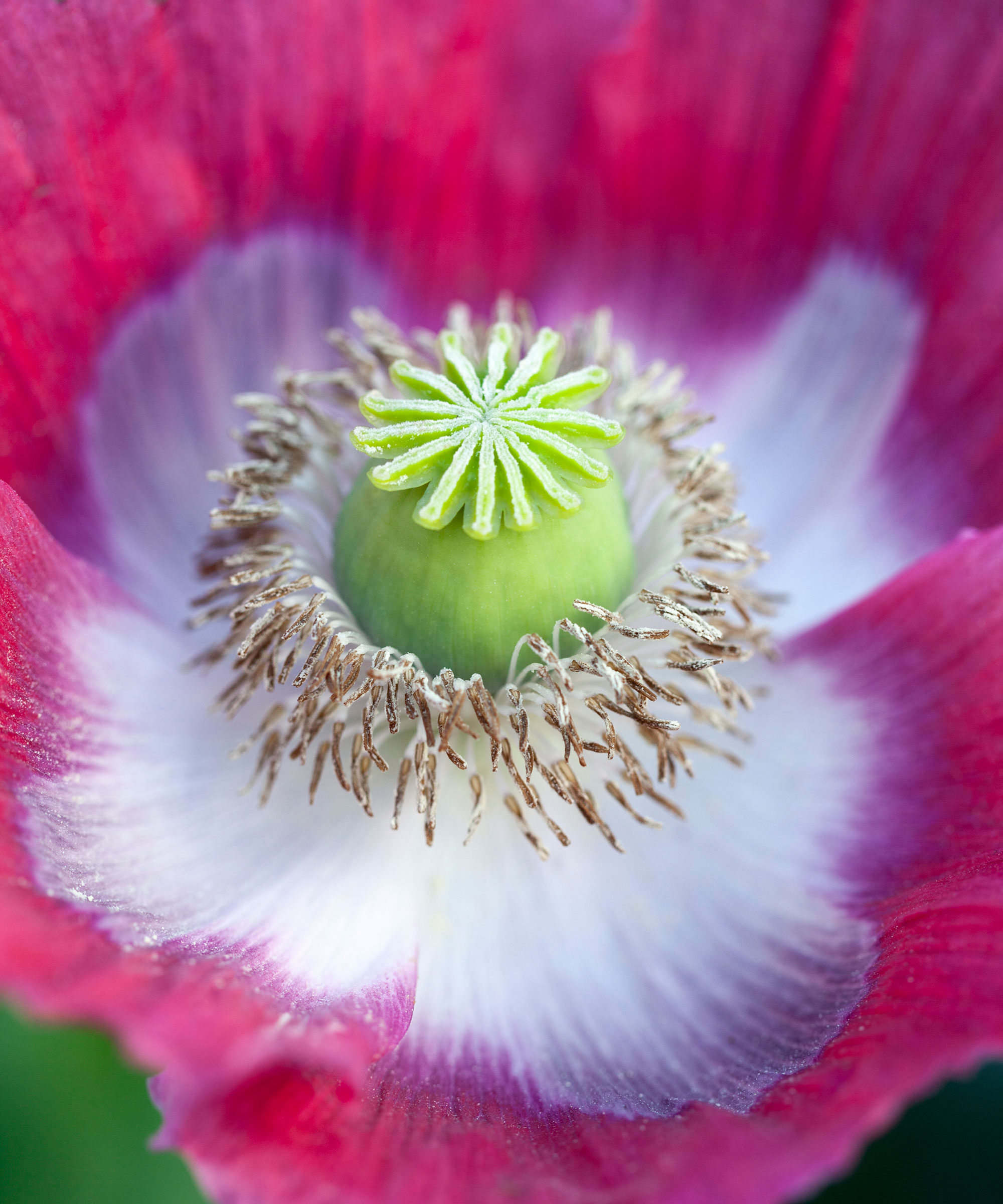
The seedpods of breadseed poppy 'Giganteum' are excellent for flower arranging
- Type of poppy: Breadseed poppy (Papaver somniferum)
- Height: 30-40in
Developed specially for drying, the seed pods are unusually large and fat for extra impact in dried arrangements.
The single flowers are relatively short-lived so grow in a row in the vegetable garden specially for adding to dried flower decorations.
There is also a variety, ‘Hen & Chickens’, with a ring of tiny pods underneath the main pod, that is also valuable for drying.
Are California poppies related to corn poppies and breadseed poppies? Do I grow them in the same way?
Yes, California poppies are related to corn poppies and breadseed poppies.
The wider poppy family not only also includes California poppies (Eschscholzia) but also Himalayan blue poppies (Meconopsis), and bleeding hearts (Dicentra).
California poppies prefer all day sunshine and a well-drained soil, like some other poppies they thrive in gravel gardens.
And, like corn poppies, softer more pastel shades have been developed alongside the fiery flowered wild type.
With so many beautiful types of poppies to choose from, you're guaranteed to find the right color and variety to suit your garden color scheme.
What's more, these stunning flowers are excellent plants for pollinators, so you'll also get to enjoy the sight of bees and butterflies as well as the flamboyant blooms.

Graham Rice is a garden writer who has won awards for his work online, and in books and magazines, on both sides of the Atlantic. He is a member of a number of Royal Horticultural Society committees and the recipient of the 2021 Garden Media Guild Lifetime Achievement Award. He gardened in Pennsylvania for 20 years, but has recently returned to his native England.